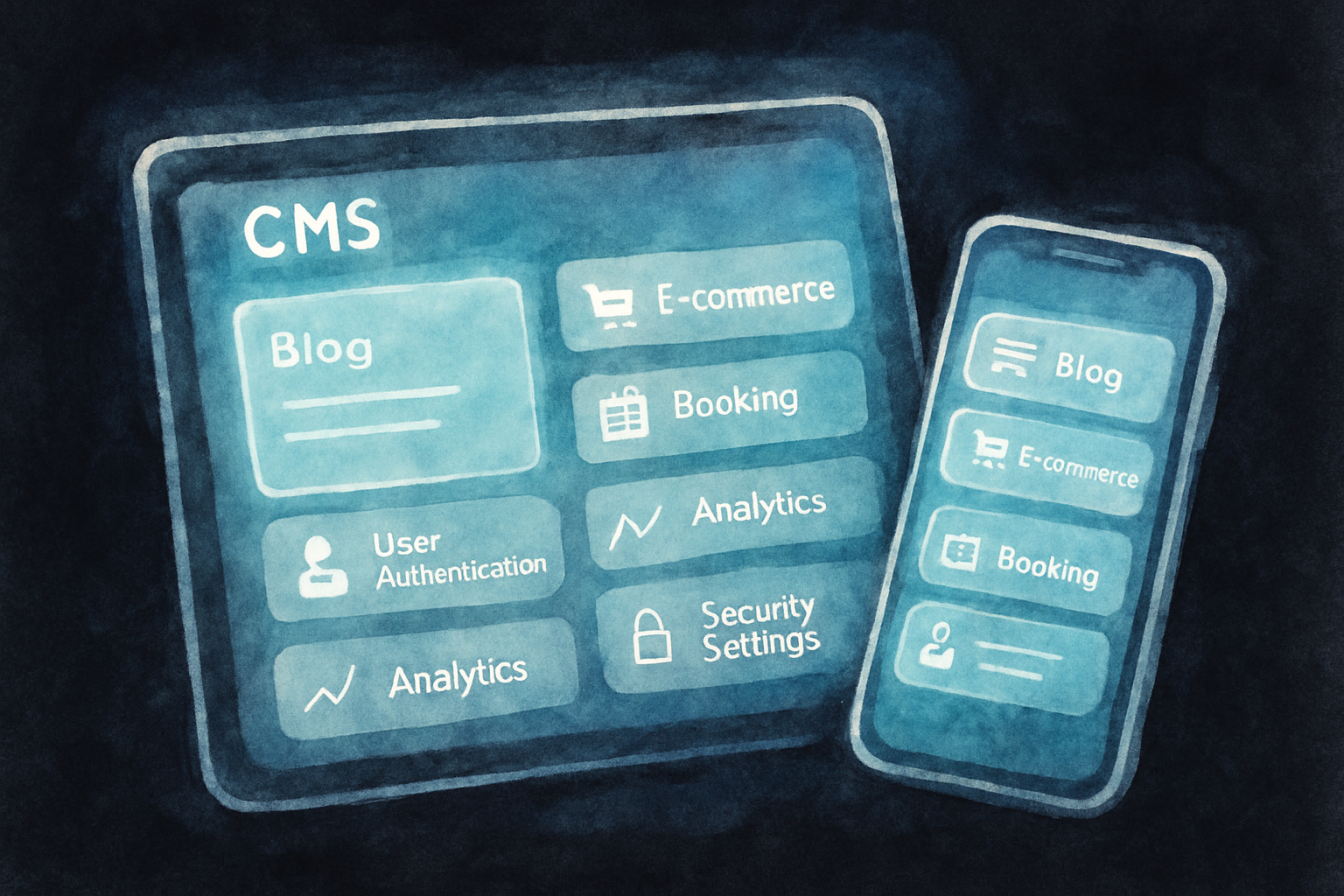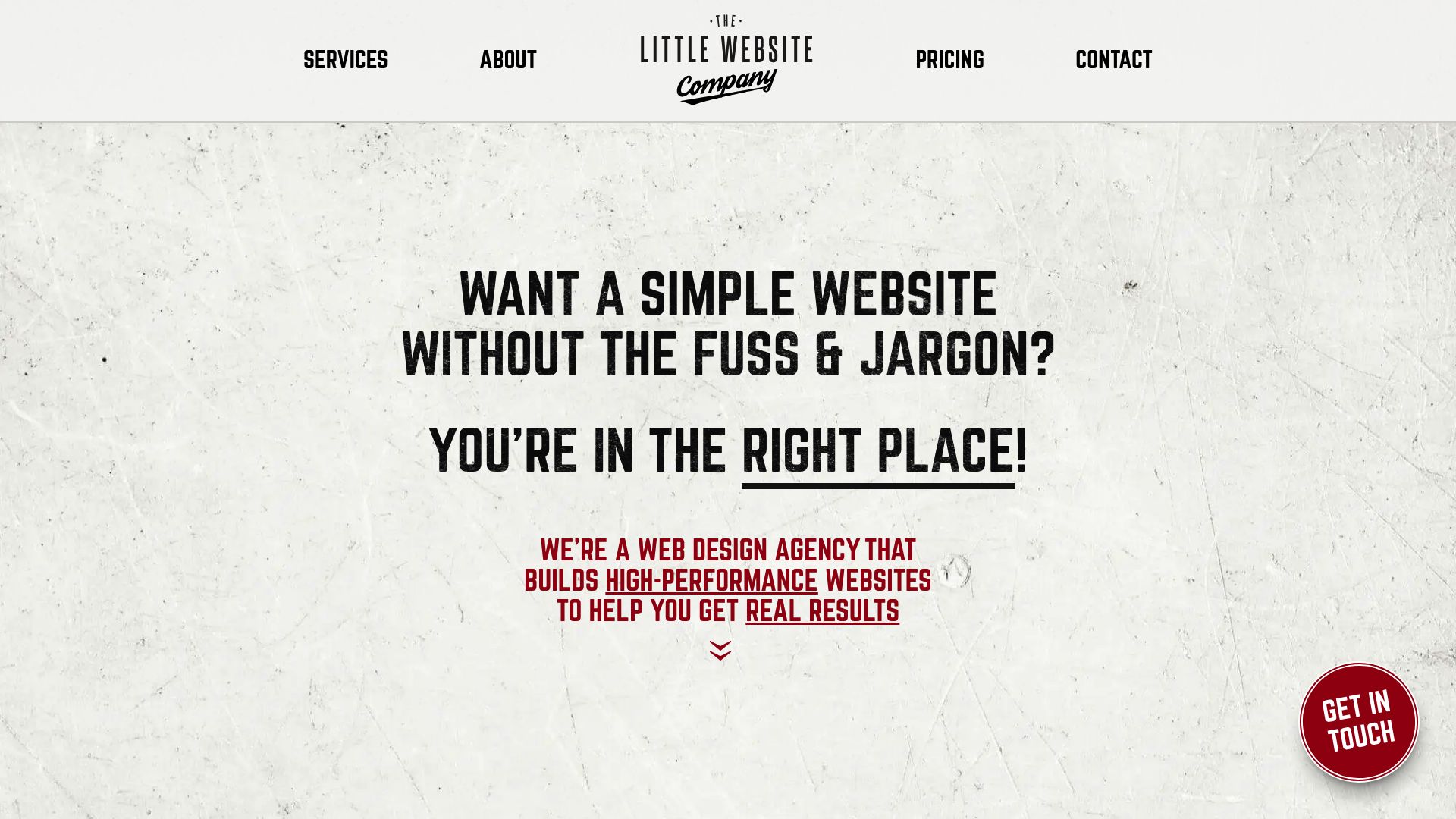

Digital content management is changing at lightning speed in 2025. Businesses face more options and challenges than ever before when it comes to building a strong online presence.
This guide will break down cms web development services, helping you cut through the noise and make smart choices for your next website project.
We’ll cover what a CMS actually is, the types and must-have features, how the development process works, platform comparisons, custom vs off-the-shelf solutions, costs, the latest trends, and proven best practices.
Ready to future-proof your website and unlock new opportunities? Let’s dive in and discover how the right approach to cms web development services can give your business the edge.
In today's digital-first world, managing your website content efficiently is essential for business growth. This is where cms web development services come into play. A CMS acts as the backbone of modern websites, making it easier than ever to create, update, and organise content. But what exactly is a CMS, and why has it become a staple for businesses of all sizes?

A Content Management System (CMS) is software that allows users to build, manage, and modify website content without needing advanced technical skills. With cms web development services, businesses can update text, images, and resources through a user-friendly interface. This is in sharp contrast to static websites, where every change requires manual coding and developer support.
CMS platforms are designed for scalability and adaptability. Over 73 million websites worldwide now rely on a CMS to handle everything from simple blogs to complex e-commerce platforms. Why? Because cms web development services offer flexibility, scalability, and ease-of-use that static sites simply can't match.
Key reasons businesses choose a CMS include:
By empowering teams to manage content directly, a CMS saves time and reduces bottlenecks, making it a smart investment for any future-focused business.
The advantages of cms web development services extend beyond just editing text and images. They streamline the entire content creation and publishing process with intuitive workflows. Teams and stakeholders can collaborate in real time, making approvals and updates more efficient.
Some top benefits include:
With cms web development services, you also get future-proofing. Regular updates and support ensure your website stays secure and performs smoothly. As your needs evolve, adding new features or modules is straightforward, keeping your site competitive in a rapidly changing digital landscape.
When considering cms web development services, it's crucial to understand the main types of CMS platforms available. Open source options like WordPress, Joomla, and Drupal offer flexibility and a vast ecosystem of plugins. Proprietary CMSs, on the other hand, provide dedicated support and tailored features, often at a higher cost.
Headless CMS is gaining serious traction in 2025. Unlike traditional systems, headless CMS separates content management from presentation, making it ideal for delivering content across multiple channels (web, mobile, IoT). Each approach has its strengths and trade-offs:
| CMS Type | Pros | Cons | Example Platforms |
|---|---|---|---|
| Open Source | Flexible, cost-effective, community support | Requires updates, security management | WordPress, Joomla |
| Proprietary | Dedicated support, tailored features | Higher ongoing costs, less flexibility | Sitecore, Kentico |
| Headless | Omnichannel delivery, API-driven | More complex setup, requires dev expertise | Contentful, Strapi |
WordPress continues to lead the market, holding a 64% share according to CMS Market Share Trends 2025. This dominance highlights the platform’s flexibility and extensive support, making it a popular choice for many seeking cms web development services.
Choosing the right CMS depends on your business needs, technical resources, and long-term goals. Each option offers unique benefits, so it's worth taking the time to evaluate which one aligns with your digital strategy.
Modern cms web development services are defined by a rich variety of features and modules that power today’s business websites. Let’s explore the essential building blocks, integrations, and advanced modules that make a CMS future-ready and competitive.

The backbone of cms web development services lies in the core modules that every business website needs. These modules are designed to make content management simple and efficient for all users.
By leveraging cms web development services that include these modules, businesses can streamline their workflows and ensure consistent content delivery. The modular approach means features can be enabled or disabled as needed, supporting scalability and flexibility. With content creators, marketers, and stakeholders all able to collaborate within the CMS, teams stay productive and agile.
For businesses selling products or services, cms web development services must offer robust e-commerce and booking integrations. Modern CMS platforms provide:
These features empower businesses to manage online sales and service bookings efficiently. The right cms web development services ensure these integrations are seamless, secure, and easy to manage, reducing friction for both customers and staff.
Beyond the basics, cms web development services often include advanced modules that help businesses stand out and capture leads.
These advanced features can be further enhanced with custom development, allowing businesses to address niche requirements and create a more engaging user experience.
Security and performance are top priorities in any cms web development services project. Modern CMS platforms offer:
Regular updates and ongoing maintenance are vital for keeping websites secure and fast. For businesses looking to maximise online visibility, it’s essential to choose a CMS with integrated SEO features. Discover more about SEO for CMS-driven websites and how these tools can boost search rankings as part of a comprehensive cms web development services strategy.
WebGuru’s proprietary CMS showcases the potential of bespoke cms web development services. Their platform offers:
A recent case study highlights how WebGuru delivered a tailored solution for a growing online retailer. The CMS was customised to manage a complex product catalogue, automate order processing, and integrate with logistics providers. This demonstrates the tangible benefits of investing in cms web development services that fit your business like a glove.
Navigating the journey of cms web development services can feel overwhelming, but a clear, step-by-step process brings order to the chaos. Whether you're building a business website or launching a bespoke e-commerce platform, following a proven workflow ensures your site is robust, scalable, and ready for the future.
This section breaks down the essential stages, from discovery to launch, to help you understand what happens at each step and why it matters.

Every successful cms web development services project begins with a solid understanding of your business goals. In this phase, the development team sits down with you to clarify your vision, target audience, and desired outcomes.
Key activities include:
This step lays the foundation for everything that follows. Clear needs assessment ensures the entire project remains aligned with your business objectives.
With your goals mapped out, the next step in cms web development services is choosing the right platform. Will your project thrive on an open-source CMS, a proprietary solution, or a headless architecture? Each has unique strengths and limitations.
The team evaluates:
For a detailed overview of available options and what each offers, you can explore the CMS web development services overview. This planning stage is crucial for avoiding costly missteps later on.
Design is where your vision becomes tangible. During this stage of cms web development services, wireframes and prototypes are crafted to define navigation, layout, and user journeys.
Key design principles include:
The team collaborates closely with you to refine the look and feel, guaranteeing your website is not just attractive but also practical for your audience.
Now, the real building begins. Developers set up the CMS core and integrate essential modules, tailoring features to your business needs. In cms web development services, this step often includes:
By following best practices, the team ensures your website is reliable, secure, and flexible enough to evolve as your business grows.
A seamless transition is vital. At this point in cms web development services, existing content—pages, blogs, images, and files—is imported into the new system. SEO is woven into every detail to protect and enhance your digital presence.
Tasks include:
This careful approach minimises search ranking disruptions and positions your website for long-term success.
Before your new site goes live, a thorough quality check is essential. The final step of cms web development services covers:
With everything checked off, your site is ready to make its debut—confident, secure, and built for growth.
Choosing the right CMS platform is a pivotal step for businesses investing in cms web development services. The landscape in 2025 is more dynamic than ever, with platforms evolving to meet new digital demands. From versatile giants to innovative newcomers, let’s explore the top contenders shaping the future of content management.
WordPress continues to dominate cms web development services, holding a remarkable 64% of the market. Its intuitive interface, massive plugin library, and active community make it the go-to choice for businesses of all sizes.
WordPress powers everything from personal blogs to complex e-commerce sites. Its flexibility means you can launch quickly and scale as your needs grow. If you want a proven, adaptable solution for your digital presence, WordPress is a strong starting point for cms web development services.
Joomla and Drupal offer cms web development services tailored for those needing advanced customisation and security. Both platforms are open source and highly extendable, making them favourites for large organisations.
These platforms are often chosen by governments, universities, and enterprises requiring granular control. Their learning curves are steeper, but the payoff is unmatched flexibility for bespoke cms web development services.
If your business revolves around online selling, Magento and OpenCart are front-runners in cms web development services for e-commerce. Magento is renowned for its ability to handle massive product catalogues and advanced store features.
Both platforms offer secure payment integrations, dynamic pricing, and inventory tools. For businesses prioritising e-commerce in their cms web development services, these platforms deliver the performance and flexibility needed to succeed.
Headless CMS is revolutionising cms web development services by decoupling content management from front-end delivery. This API-first approach enables businesses to publish content across websites, mobile apps, and even IoT devices effortlessly.
Leading headless CMS options in 2025 include Contentful, Strapi, and Sanity. For more on the evolution of these platforms and their impact on the industry, see CMS Development Trends 2025. If your business needs future-proof, flexible cms web development services, headless architecture is a smart choice.
For businesses with unique processes or strict security requirements, proprietary and custom-built CMS solutions offer unmatched control. These cms web development services are tailored from the ground up to fit specific workflows, branding, and integration needs.
Pros:
Cons:
Custom CMS platforms excel when off-the-shelf options can’t address complex requirements. They’re an investment in scalability, security, and long-term digital growth—especially for businesses seeking truly distinctive cms web development services.
Choosing between custom and off-the-shelf CMS web development services can feel like standing at a crossroads. Each path offers unique benefits and challenges, so understanding your business needs is key to making the best decision.
Off-the-shelf CMS web development services are popular for their speed and simplicity. These platforms, such as WordPress or Joomla, allow you to launch a professional website in record time. You get access to a library of pre-built modules, plugins, and themes—no need to reinvent the wheel.
Managing your website becomes straightforward with these solutions. Tasks like content changes, image uploads, or adding new features are typically user-friendly. For ongoing website content updates and management, off-the-shelf options shine by making these processes accessible to non-technical users.
Sometimes, your business needs a solution as unique as your brand. Custom CMS web development services are ideal when you have specialised workflows, complex integrations, or require granular control over every feature.
A bespoke CMS is perfect for organisations with strict data handling policies or those needing advanced booking systems and unique user experiences. If your growth plans demand features not available in pre-made platforms, a custom solution may be the best fit. This path ensures your website evolves precisely alongside your business.
Understanding the financial and operational impact of both options is crucial. Here’s a quick comparison:
| Feature | Off-the-Shelf CMS | Custom CMS |
|---|---|---|
| Initial Cost | Low to moderate | Higher |
| Maintenance | Vendor/Community supported | In-house or agency required |
| Updates | Automated, frequent | Manual, scheduled |
| Scalability | Moderate, with plugin reliance | High, built to spec |
With off-the-shelf CMS web development services, ongoing maintenance is often streamlined, but you’ll need to stay on top of updates and security patches. For a deeper dive into this aspect, check out website maintenance and security practices. Custom solutions, on the other hand, require dedicated support but offer more control over scaling and updates.
Many small businesses thrive using off-the-shelf CMS web development services, especially for e-commerce or portfolio sites. They benefit from quick rollouts and a vast ecosystem of extensions.
However, companies like WebGuru have excelled by investing in custom CMS platforms tailored to their specific needs—enabling seamless integrations and unique customer journeys. The right approach depends on your resources, goals, and growth plans.
Whether you lean towards a ready-made solution or a bespoke build, aligning your choice with long-term strategy ensures your website remains both effective and future-ready.
Staying ahead in the digital world means keeping up with the latest trends shaping cms web development services. In 2025, the landscape continues to evolve at lightning speed. Businesses that embrace best practices and new technologies are better positioned to delight users, boost visibility, and future-proof their online presence.
AI is revolutionising cms web development services. In 2025, AI-driven tools make content recommendations smarter and more personalised. Automation streamlines everything from SEO optimisation to image tagging and even content scheduling.
Some powerful ways AI is transforming CMS include:
For a deeper dive into these innovations, check out Future-Proof CMS Trends. With these advancements, teams can focus on strategy while AI handles the heavy lifting. This shift boosts productivity and helps businesses scale their cms web development services efficiently.
Sustainability is top-of-mind in cms web development services. Lightweight, eco-friendly websites not only load faster but also reduce energy consumption. In 2025, the goal is clear: keep page sizes under 1MB and prioritise green hosting.
Benefits of eco-friendly CMS websites:
| Benefit | Impact |
|---|---|
| Faster load times | Better user experience, higher SEO rank |
| Reduced carbon output | Lower environmental impact |
| Higher engagement | Users stay longer, bounce rates drop |
By adopting sustainable practices, businesses using cms web development services demonstrate responsibility and attract eco-conscious customers.
Security is a non-negotiable feature of cms web development services. With GDPR and stricter global privacy laws, CMS platforms must offer robust user authentication, two-factor security, and audit trails.
Key security measures include:
By prioritising these features, businesses build trust and avoid costly breaches in their cms web development services.
Demand for flexibility is driving the adoption of headless and API-first cms web development services. These architectures decouple the content backend from the frontend, allowing content to flow seamlessly to websites, mobile apps, and even IoT devices.
Advantages of headless CMS:
To explore this further, see Web Development Trends 2025 for insights on how headless CMS is shaping the future of cms web development services.
User experience and accessibility are at the heart of modern cms web development services. Designing with WCAG guidelines ensures everyone, including people with disabilities, can access your site. Mobile-first and responsive layouts are now standard.
Best practices include:
A focus on UX boosts engagement, conversions, and the reputation of cms web development services.
Seamless integration is a hallmark of effective cms web development services. Connecting your CMS with CRM, email marketing, and analytics tools enables data-driven decision making.
Key integrations:
These tools empower businesses to refine content strategies and maximise ROI from their cms web development services.
Selecting the ideal partner for cms web development services is critical. Look for agencies with proven experience, technical skills, and strong support.
Questions to ask potential partners:
A reliable partner ensures your cms web development services run smoothly from launch to long-term growth.
The Little Website Co. stands out for their bespoke approach to cms web development services. They focus on building ultra-fast, eco-friendly websites tailored to unique business needs. Their solutions emphasise responsive design, SEO optimisation, and ongoing maintenance.

Small and medium businesses benefit from their commitment to sustainability, high performance, and results-driven cms web development services.
If you’re feeling inspired to take your website to the next level after reading this guide, you’re not alone—there’s a lot to consider with CMS web development in 2025! Whether you want a site that loads lightning-fast, ticks all the SEO boxes, or simply feels unique to your business, knowing where you stand is the perfect first step. Why not let us help you see what’s possible? You can get a fresh perspective on your current website with our Free Website Audit. Let’s figure out how to future-proof your online presence, together.
Let's chat...
Submitting Web Design Enquiry...